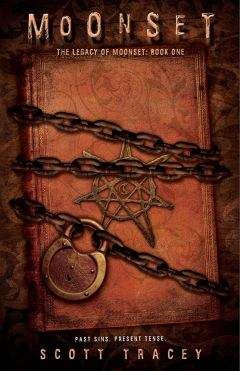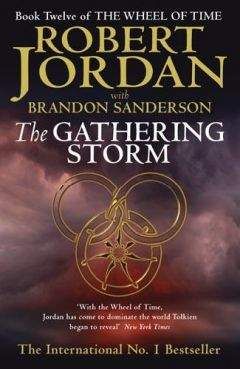Moonset
The Legacy of Moonset 1
by
Scott Tracey
“Moonset, a coven of such promise. Until they turned to the darkness. Their acts of terrorism fueled by dark magic nearly destroyed us.
But we fought back. And we won.”
Illana Bryer (C: Fallingbrook)
From a speech given the night Moonset was captured
There were two hundred forty-five students involved in the riot. What had started as a minor altercation between the basketball and track teams had devolved into a literal kind of class warfare. Freshmen against juniors, girls against boys, art kids versus burnouts, 4Hers against everyone.
The town’s entire full-time police force, all three of them, had been trying for the better part of an hour to reestablish control. Reinforcements had been called, the rest of the school had been evacuated, and I found myself in the principal’s office with my sister, only two days shy of winter break. We’d been so close this time.
We sat in silence: Jenna examining her nails and touching up her makeup and me leaning against the window, afraid to peek between the blinds. The view overlooked the front quad, and today it offered a glimpse of madness. I don’t know how she’d managed it, but the entire school had lost it an hour ago.
These things tended to happen when Jenna got bored.
She favored me with a sullen, annoyed look. I didn’t have to say anything, didn’t have to sift through old frustrations and new accusations until I knew the words I wanted to use. One look, and Jenna saw it all on my face. She always did.
“Calm down, Justin,” she said after I’d closed my eyes. “It’s no big deal.”
“Getting kicked out of school is a big deal, Jen.”
“The first time, maybe,” she mused, “but you’ve had enough practice by now. You’re a pro.”
This was school number seven, and I definitely should have seen this coming.
Jenna and I were unaffectionately known as “the twins.” It was how people introduced us, talked about us, traded stories about us. Like we were really a single person split between two bodies. It never failed that the minute Jenna crossed the line and got hauled in to a principal’s office, I was right behind her. Our fates had been super-glued together for our entire lives.
Especially in situations that involved buzzwords like “vandalism of school property,”
“suspicious fires,” and “criminal charges.”
Seven schools in three years. We’d almost made it through an entire semester, and I’d gotten lazy. I forgot what Jenna could do with just a few whispered words. Riots were the tip of the iceberg. Fitting, since Jenna’s rap sheet was the size of Antarctica.
To be fair, not all of the expulsions were her fault. One of them was our brother Malcolm’s, and a few others were for reasons we didn’t fully understand.
Our lives were just a tad complicated.
I looked around the room, but the precarious stacks of paperwork on the desk were definitely a theme in this office. Every available surface had something on it. Even the lampshade was littered with blue Post-its.
“Bailey’s going to be crushed,” I pointed out absently. How does anyone find anything in here? There’s too much paperwork—and too much bureaucracy—for one small-town principal.
I couldn’t even think of his name. It wasn’t Reynolds, that was the last school. Jeffries, maybe?
“She’ll get over it,” Jenna said, keeping her words light. Bailey always got her heart crushed when we moved. She threw herself into every new school as if it would be the last. It never was.
“Don’t you think we’re running out of schools?” I said wearily. This was an argument we’d had a thousand times.
“We haven’t even tried Europe,” she fired back. Her fingers tapped restlessly against the wooden arm of the chair. “I hate waiting. Where is he?”
“I apologize if cleaning up your mess has inconvenienced you in any way,” the principal said from behind us. I turned just in time to see him pushing a wiry blonde boy into the room and then closing the door. “I can only imagine the kinds of delinquency I’m keeping you from, Miss
Bellamont,” he continued.
The blond boy was the last of our siblings, Cole, and his arrival with the principal meant nothing good. Cole tried to saunter in, only to nearly trip over himself. He ended up lunging for the back of my chair, trying to keep himself upright.
Somewhere after Seattle, he’d finally grown into his ears. When we were kids, Cole was the kid with giant Dumbo ears dwarfing the sides of his head. Now they were barely notable.
Although he still hadn’t hit a decent growth spurt. He was the shortest boy in the school.
What’d he do now? was quickly followed by how could he possibly make a riot any worse?
“What’d you do, Cole?” I asked, already wishing I didn’t have to ask. Things went from bad to worse so quickly around us I should have been expecting it.
Jenna was more acerbic. “You got caught?”
Cole had the decency to look ashamed. I pretended it was because he’d helped start a riot and not because he’d gotten caught. “I just wanted a good seat.” A few seconds of silence went by, and he continued. “And maybe I was egging some of the football jerks on.”
“You were shouting out quotes from Gladiator and trying to tear your shirt off,” the principal said dryly. He was a red-haired, mustached man who I hadn’t talked to since we’d enrolled four months ago.
“I just wanted to know if they were entertained,” Cole said, blushing a little, before he caught a glimpse of Jenna’s waspish look and his voice died.
She and I traded a look. “Can we get on with this? I’d like to deface my locker before the last bell,” she said, as though she were on a schedule.
The principal sucked in a deep breath, and held it. I wondered who he was praying to.
Buddha? Jesus? St. Jude, the patron saint of lost causes? Whatever god he was praying to, it wouldn’t help. Jenna defied the power of prayer.
“I have put up with enough from you and your lot,” he said.
Your lot. I could practically hear Jenna preening next to me. There was nothing she liked better than someone who tried to put her in her place. Especially when it was an adult.
I could see it all laid out in front of me, even before it happened. It wouldn’t be enough for
Jenna to embarrass the principal by making him look like an incompetent, she’d want a hand in embarrassing him personally. I chanced a look to my left. The anticipation was nearly killing her. There was more to come. What did she have on him? Alcoholism? Mistress?
“Now then,” the principal said, exhaling. I could almost see The Speech building up strength, rising from his gut as he worked through the preliminaries. The part about not quite understanding how things had gone so wrong. A whole subconversation about how we clearly needed things that Byron High could not provide. Principals, no surprise, rather enjoyed The
Speech. The one that ended with the word “expelled.”
But his joy was to be short-lived. An insistent knock cut off what he was about to say. “I told you I wasn’t to be disturbed,” he shouted.
There was silence on the other side. And then a slower, insolent series of raps on the door.
Jenna covered her mouth with her hand, but it didn’t stifle the giggle. Not that she wanted it too.
The principal muttered something under his breath, and got up to open the door. “Marjorie—” he cut off, because the woman on the other side definitely wasn’t the part-time receptionist that he expected. The woman on the other side was all business. She wore a pantsuit paired with an emerald-green blouse and a charcoal gray overcoat. Her thick, unnatural red hair hung down loose, almost as curly as Jenna’s.
Cole’s eyes about fell out of his head. Jenna and I ex-changed a look, and without missing a beat she grabbed the fabric of his shirt, pulling him closer towards us.
“Jeffries?” the woman asked in a deep, smoky tone.
I could tell that Jeffries wanted to hitch up his pants and start blustering. This woman—though she was only in her twenties—had him sized up in a second, and strode into the room, heels staccato against the floor.
Who is she? Jenna mouthed. I shrugged.
“If you’ll step outside,” the woman said to him, while her eyes slid over us imperiously.
Jenna sat up, even more alert than she’d been before. Neither of us had missed the dismissive curl of the redhead’s lips as she looked us over. Whoever she was, she knew who we were.
Without as much as a please, the woman turned and headed back out into the front office.
Through the gap in the door, I saw another man waiting near the receptionist’s desk, in the same kind of business casual as the redhead. Jeffries gaped for a moment, then all of a sudden he lurched forward, like an automaton brought to life.
Jenna was muttering under her breath when the principal grabbed the door handle on his way out. The door swung closed, but didn’t catch all the way. I crossed the room, nudged it open just a crack, and waited.
The three of us were absolutely still, our ears straining for what was going on out there.
“ … taking them immediately.”
Principal Jeffries cleared his throat. “I’m sorry, I don’t understand what you’re telling me.”
“As long as they remain here, your students, as well as your faculty, are in danger,” the woman said, obviously annoyed at having to repeat herself.
“I’m aware of that,” the principal said in a huff. “Those students started a riot. Or didn’t you notice when you stormed in?”
“Your naiveté is nearly precious,” the woman murmured.
“And who are you exactly?” the principal continued. “You’re not one of their guardians.”
“My name is Miss Virago,” she said, sounding like some sort of crossbreed between stuffy boarding school matron and prissy coed. “And giving you any details about what is coming here, now, is a waste of my time. You won’t remember—or believe—me anyway. The only thing that will help is to get them out of your quaint little farming community as soon as possible.”
“What the hell’s going on?” I whispered. Next to me, Jenna looked pensive.
“Now you’re going to leave with this gentleman,” Virago continued, her voice suddenly cheerful and disarming. “And when he’s done talking with you, the troubles these children caused will be little more than a dream.”
“What?”
There were sounds of movement hidden by the door. “I’ll handle the children’s transport,”
Virago said, all business once again. “Clean up the girl’s mess, and make sure the principal … ”
Her voice dropped, and I missed the rest.
A man’s voice. “What about the rest of the school? The riot?”
The woman exhaled slowly. “I don’t care,” she snapped. “These people aren’t our concern.
Let them sort out their own problems.”
They were going to make us disappear. Take every trace of us and make it vanish: yearbook photos, our houses and things, everything. This wasn’t the first time. This was just a little more thorough, and that made me wonder. How bad was it really?




![Rick Page - Make Winning a Habit [с таблицами]](https://cdn.my-library.info/books/no-image-mybooks-club.jpg)